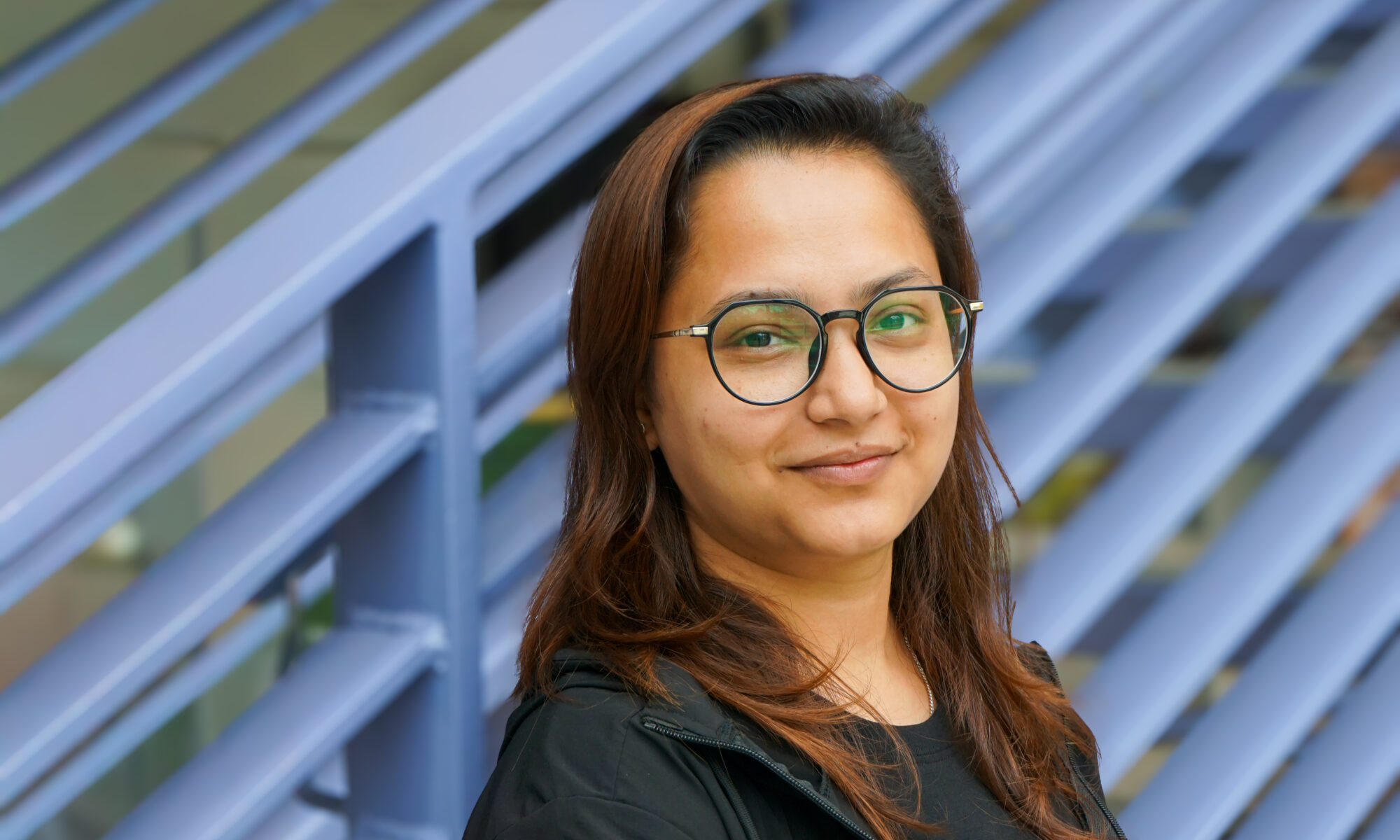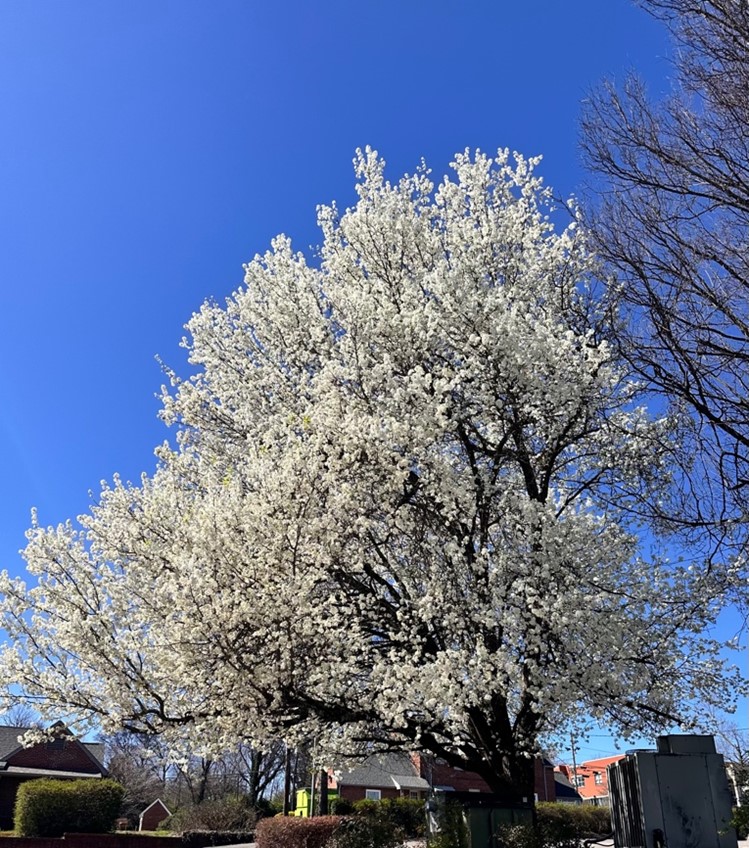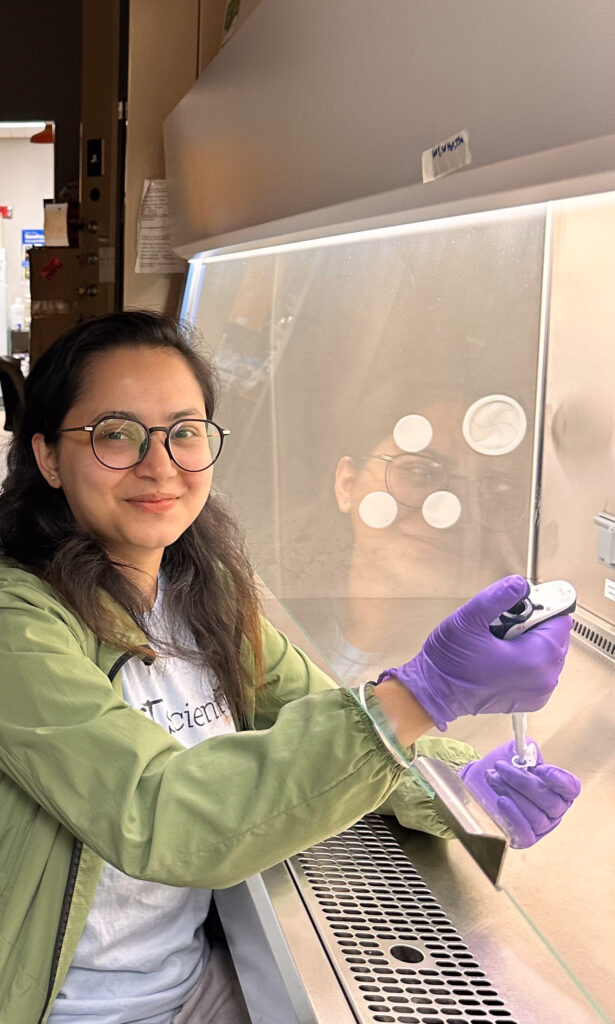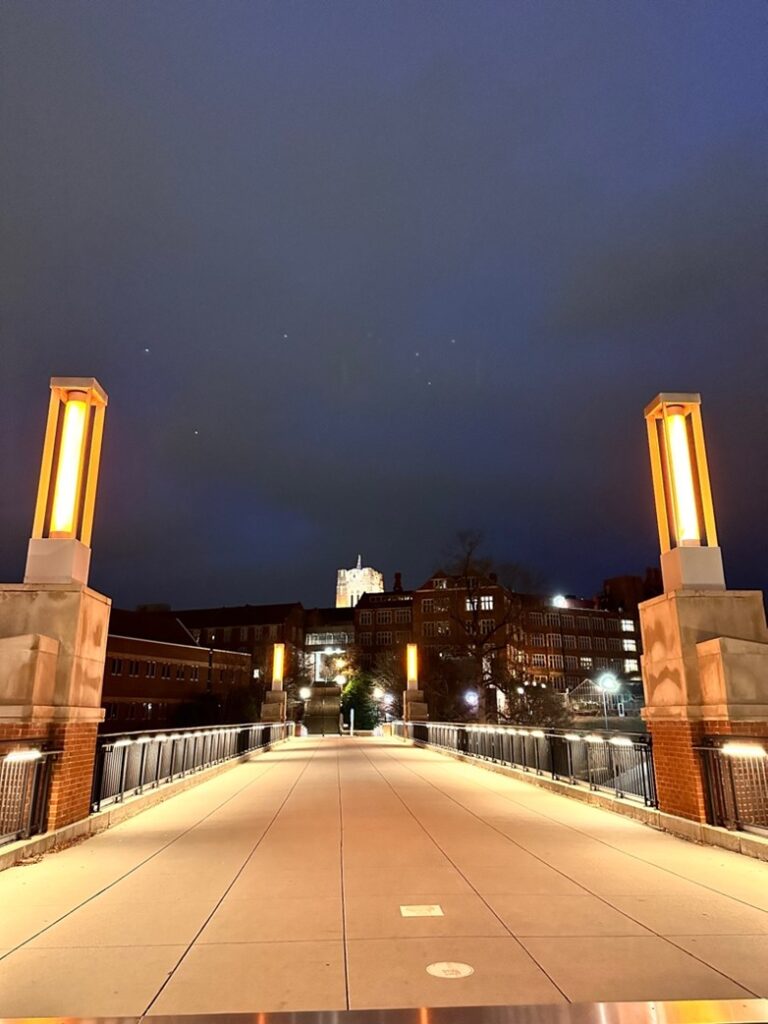
Originally from Nepal, Alina Pohkrel is pursuing a master’s degree in plant pathology. Under the mentorship of Marcin Nowicki, a research assistant professor within the department, Pokhrel focuses on invasive Callery pear trees. Pokhrel’s research aims to develop a detection tool for these invasive species. With opportunities inside and outside of the classroom, Pokhrel mentions how her graduate school journey has been an enriching experience.
Q&A with Alina Pokhrel
Can you tell me a little bit about yourself?
Well, my name is Alina Pokhrel. I completed my undergraduate studies in my home country, Nepal. I joined the Department of Entomology and Plant Pathology in Fall 2022 to pursue my master’s degree. I work under Dr. Marcin Nowicki, and my research focuses on invasive Callery pear. Upon completing my master’s, I plan to continue my academic journey by pursuing a Ph.D.
What is your current concentration?
Plant Pathology
What is your current research question?
Currently, I am working to develop a LAMP-based molecular detection tool for Callery pear.
Can you tell me more about your research?
Callery pear, commonly called as Bradford pear has become invasive in several states. From its introduction in the United States in the early 1900s, it has been commercially used as rootstocks for propagating fruiting pears, alongside other pear species. Several states are restricting the sale of rootstocks to limit its ongoing spread. To aid the state in enforcing regulatory measures, I am working to develop a field-based detection tool that could reliably detect Callery pears’ rootstocks.
I am also working on the population genetics study of Callery pear to identify and compare the genetic diversity of native populations, naturalized wild escapes in the U.S., and commercial cultivars.

What are your primary obstacles in answering this question?
Designing the LAMP primers specific to Callery pear, that could differentiate it from its closely related species has been a challenge.
What academic classes have been your favorite and why?
One of my favorite courses was Plant Health Diagnostics, which is offered at WTREC. It was a nice experience diagnosing plant health problems in the field. Field visits were fun. Currently, I am taking an EPP531 course on Applied Genome Analytics, and I am really enjoying it. This course has been instrumental in equipping me with fundamental command line skills, enabling me to overcome my initial fears and develop a passion for bioinformatics.
How has your academic training at The University of Tennessee prepared you for a career in the industry?
The academic training at The University of Tennessee has provided me with a strong foundation in both theoretical knowledge and practical skills. Apart from the basic laboratory skills for DNA extraction and PCR, I gained bioinformatics and computational skills as well. Grad life has taught me time management, multitasking, and networking.
What has been the highlight of your graduate school experiences so far?
For an international student like me, the highlight of my graduate school experiences has been the opportunity to interact with students and faculty from various backgrounds, bringing up cross-cultural exchange and broadening perspectives. Overcoming the challenges of living and studying in a new country has contributed to my personal growth.
What do you believe is your biggest academic achievement?
Receiving awards and recognition from the department and the University for my academic and research excellence is so far my biggest achievement.
What kind of extracurricular activities do you participate in?
I am an APS Southern Division student representative, where I am involved in planning the annual APS meetings.
What are your favorite hobbies?
I love hiking, doing poetry and music.
What are your favorite things to do on campus?
I like walking around the campus in the evening.
Any advice you would like to share with a prospective student?
I would suggest them to not hesitate to seek help, ask questions to friends and mentors. Don’t forget to take notes of whatever you do in the lab, be patient and celebrate your accomplishments.
Is there anything that you would like to add?
Thank you for this opportunity to talk about myself and my research. Our department is awesome. Also, as someone closely involved in research related to the Callery pear trees, I urge everyone to familiarize themselves with the invasive nature of this species and discourage its further planting.


